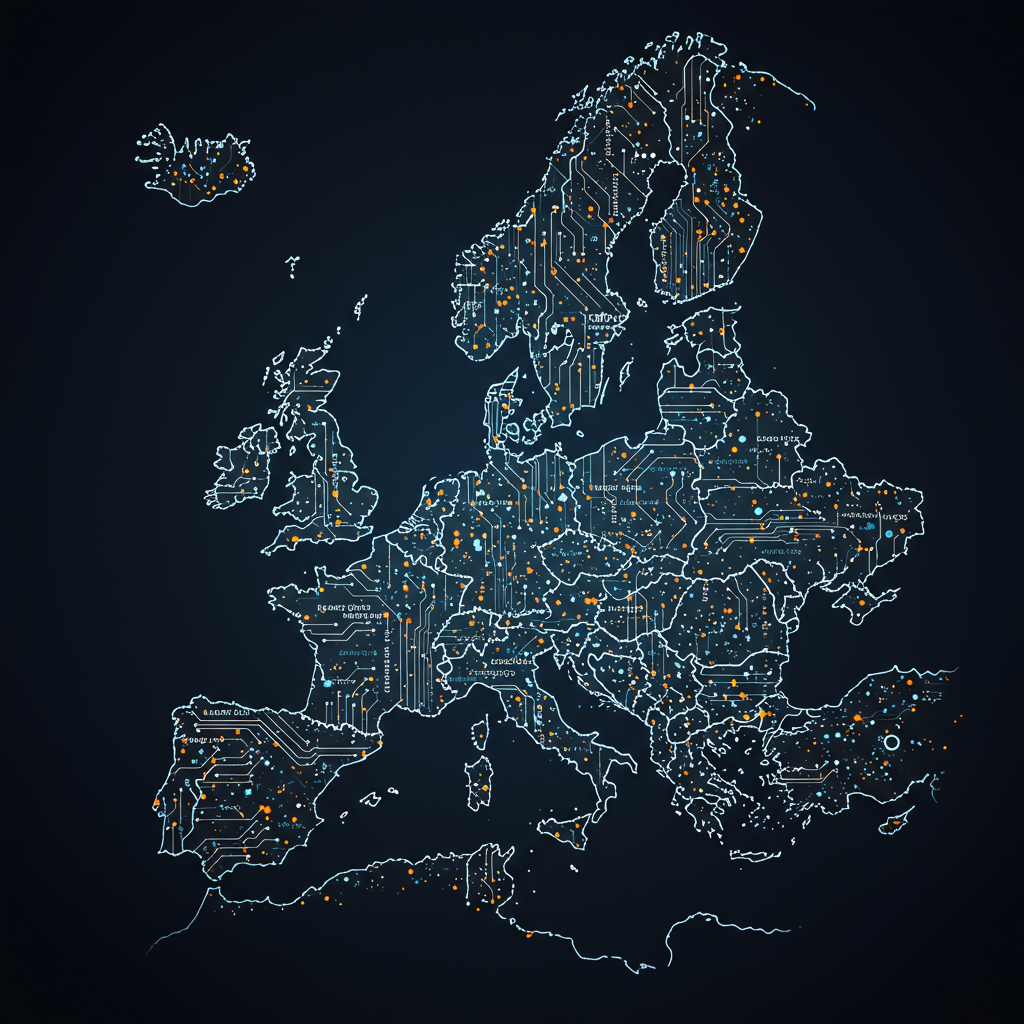TECHNOLOGY AI TECH NEWS INNOVATION
Europe’s Tech Quest: Seeking Digital Independence
The global technology landscape is in constant flux, marked by rapid AI advancements, shifting power dynamics, and a growing push for national or regional autonomy. At the heart of this evolution is Europe, grappling with a critical dilemma: how to foster its own vibrant tech ecosystem while heavily relying on the infrastructure and services provided by dominant overseas, primarily American, tech giants. This isn’t just about market share; it’s a strategic imperative concerning digital sovereignty, the capacity for a country or bloc to govern its own digital domain.
For years, Europe’s digital infrastructure has been deeply intertwined with US corporations, a dependency that European leaders view with increasing anxiety. This over-reliance presents risks, from data security and privacy concerns to economic vulnerability if access to critical services were ever disrupted. The goal is clear: bolster local tech industries, nurture homegrown talent, and cultivate innovation from within the continent. Achieving this digital independence requires considering potential policy shifts aimed at creating a more level playing field and stimulating European leadership in key technology sectors, including the burgeoning field of Artificial Intelligence.
Navigating the AI Frontier: Opportunities and Challenges
The rise of AI introduces both immense opportunities and complex challenges for Europe’s autonomy ambitions. Developing national capacity to understand, build, and regulate AI systems is crucial for retaining agency over this transformative technology – a concept increasingly referred to as AI sovereignty.
However, fostering AI leadership isn’t without hurdles. Within Europe, regulatory landscapes can present significant challenges. For instance, the debate around copyright law and Text and Data Mining (TDM) for AI training data highlights this complexity. While the EU has moved towards permitting commercial TDM with opt-out mechanisms for creators, the path is not always smooth. In the UK, for example, post-Brexit law initially restricted TDM largely to non-commercial research, sparking intense debate about whether existing frameworks stifle AI development compared to approaches seen in the US (with its ‘fair use’ doctrine) or even the EU. Balancing the needs of AI developers who require vast datasets with the rights and economic sustainability of creative industries, who fear erosion of their assets, is a delicate act. This exemplifies the broader struggle within Europe to create an innovation-friendly environment without undermining established sectors or fundamental rights.
Geopolitics further complicates the picture. The digital world itself is seeing signs of fragmentation, influenced by the distinct regulatory philosophies and strategic interests of major global players like the United States, China, and Europe. Navigating this complex geopolitical terrain while trying to build internal capacity adds another layer to Europe’s quest for tech autonomy.
European Innovation is Emerging
Despite the narrative of dependency, innovation is certainly alive within Europe. European startups are leveraging AI in diverse and impactful ways, sometimes expanding beyond traditional niche markets to address broader needs. For example:
AI for Accessibility: Startups focusing on disability tech are using AI to solve real-world problems, like improving safety for the hearing impaired through sound recognition (Visualfy) or enhancing speech clarity in noisy environments for everyone, regardless of hearing ability (Knisper). These companies demonstrate how AI can be applied not just for specific groups, but to create solutions beneficial to a wider population, often meeting accessibility mandates in public and business sectors.
Voice Technologies: AI is transforming voice banking, allowing individuals facing potential voice loss to preserve and clone their voice more easily and realistically than ever before.
These examples, while perhaps less visible globally than the moves of Silicon Valley giants, showcase the potential for European innovation to deliver unique, value-driven applications of AI.
The Global Tech Dynamics Continue
Meanwhile, the global tech giants continue to push the boundaries of innovation, influencing markets worldwide, including Europe. Developments like:
Smart Glasses Evolution: Companies like Meta, collaborating with partners like Oakley, are advancing wearable tech with features like high-resolution video recording and integrated audio, blurring the lines between personal devices and augmented reality concepts.
AI Search Ambitions: Major players like Apple are reportedly exploring acquisitions or partnerships, such as with AI search engine companies like Perplexity AI, to bolster their AI capabilities and potentially challenge established search engine dominance. This highlights the strategic race to integrate advanced AI into core services.
- Autonomous Vehicle Progress: The rollout of limited robotaxi services in cities like Austin, Texas, by companies such as Tesla, demonstrates the ongoing, albeit carefully monitored, progress in autonomous mobility solutions, even as human safety monitors remain part of the initial phases.
- www.besttechie.com
- cepa.org
- carnegieendowment.org
- techcrunch.com
These global advancements underscore the dynamic nature of the tech frontier and the powerful forces Europe is navigating as it seeks to carve out its own space.
The Path Forward
Europe’s journey towards greater tech autonomy and AI sovereignty is a complex endeavor, involving significant investment, regulatory reform, and strategic positioning in a competitive global arena. It requires not only building internal capacity but also addressing the inherent challenges of governing powerful digital technologies and ensuring they serve democratic values and human rights.
As the “tech tug-of-war” continues, marked by geopolitical competition, regulatory debates, and relentless innovation, Europe’s ability to successfully balance dependency with independence, and leverage AI for its own strategic advantage, will define its digital future. The ultimate question, as with any powerful technology, remains not just what AI can do, but what humanity – and in this case, Europe – will choose to do with it.



